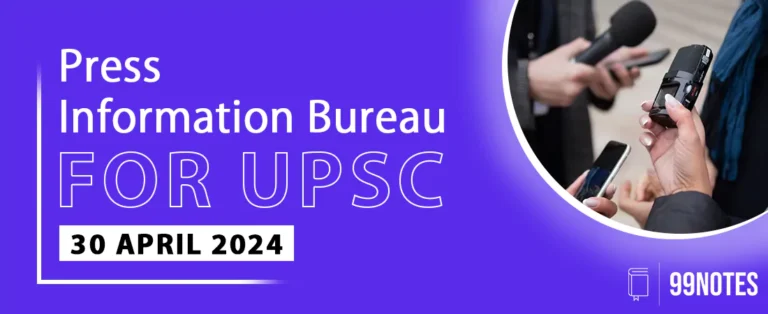4 June 2024 : PIB Summary for UPSC
1. India participates in ITU’s WSIS+20 Forum High-Level Event and ‘AI for Good’ Global Summit
| Topic: GS2 – Governance
GS2 – International Relations – Agreements involving India or affecting India’s interests. |
| Context |
| ● India, leading in global AI standards development, will host the World Telecommunication Standardization Assembly (WTSA) 2024 in New Delhi from October 15-24.
● At the WSIS+20 Forum in Geneva, India highlighted AI-driven reforms in telecom and emphasised the need for accessible, affordable AI technologies for developing countries. |
Analysis of the news:
- India is leading the development of global standards for responsible and trustworthy AI.
- The Telecom Engineering Centre (TEC) of the Department of Telecommunications (DoT), India, has released a standard for assessing and rating fairness in AI systems.
- The Telecom Engineering Centre (TEC) is currently working on a standard for assessing and rating the robustness of AI systems.
- Shri Niraj Verma, Additional Secretary (Telecom), addressed a session on global AI standardisation and regulation in Geneva, Switzerland.
- Verma led a delegation at the WSIS+20 Forum High-Level Event and ‘AI for Good’ Global Summit from May 27-31, 2024.
- The events were co-organized by ITU, UNESCO, UNDP, and UNCTAD, and co-hosted by ITU and the Swiss Confederation.
- India will host the World Telecommunication Standardization Assembly (WTSA) 2024 in New Delhi from October 15-24, 2024, and launched the WTSA host country website.
- The Indian delegation highlighted the use of AI in the telecom sector for building a sustainable future.
- Sessions attended included topics on maximising AI rewards, emerging technologies, AI governance, and sustainable connectivity.
- Emphasis was placed on making AI technologies accessible and affordable for developing countries.
- Ethical, privacy, and inclusivity challenges in AI governance were discussed.
| AI Standardisation and Associated Challenges: |
| AI Standardisation:
● Definition: AI standardisation involves creating guidelines, protocols, and frameworks to ensure interoperability, safety, and ethical use of artificial intelligence. ● Objective: Ensures consistent quality, reliability, and performance of AI systems across different applications and industries. ● Key Areas: Includes data formats, algorithms, ethical guidelines, safety protocols, and transparency measures. Associated Challenges: ● Rapid Technological Advancements: AI technology evolves quickly, making it difficult to establish and maintain relevant standards. ● Global Coordination: Achieving international consensus on AI standards is challenging due to differing regulatory environments and priorities. ● Ethical Concerns: Addressing ethical issues, such as bias, privacy, and accountability, requires comprehensive and adaptable standards. ● Complexity and Diversity: The diverse applications of AI across various sectors complicate the development of universal standards. ● Implementation: Ensuring widespread adoption and compliance with AI standards among developers, companies, and governments is challenging. ● Innovation vs. Regulation: Balancing the need for innovation with the necessity of regulation to protect public interest can be difficult. |
| PYQ: Introduce the concept of Artificial Intelligence (AI). How does AI help clinical diagnosis? Do you perceive any threat to privacy of the individual in the use of Al in healthcare? (150 words/10m) (UPSC CSE (M) GS-3 2023) |
| Practice Question: Discuss the challenges and opportunities of AI governance in ensuring ethical, inclusive, and responsible use of artificial intelligence in public sector services. How can developing countries balance innovation and regulation to maximise AI’s benefits while mitigating its risks? (250 Words /15 marks) |
(Source – https://pib.gov.in/PressReleseDetail.aspx?PRID=2022651)



